Program Leadership

Scott Gerber, PhD
QBS Director
Dr. Gerber's lab develops high-throughput mass spectrometry technology and bioinformatics methods for the analysis of proteins and their post-translational modifications in complex biological processes such as cell division and tumorigenesis.
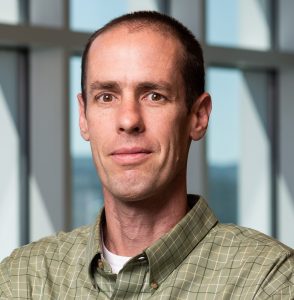
H. Robert Frost, PhD
QBS Associate Director
Dr. Frost's research focuses on the development of novel bioinformatics and biostatistical methods for high-dimensional data analysis. Applied research areas include gene set testing, gene-gene and gene-environment interactions, biomedical ontologies and cancer genomics. Statistical topics of interest include penalized regression, principal component analysis, random matrix theory and optimization.

Michael Whitfield, PhD
Chair of Biomedical Data Science
Dr. Whitfield's work focuses on is Precision Medicine in systemic sclerosis (SSc). His laboratory is identifying gene expression biomarkers that subset SSc patients, predict clinical endpoints, and assess response to therapy. The lab is focused on understanding the pathophysiology of the disease, analyzing molecular data from SSc clinical trials, perform network analyses on SSc genomic data, and using this information for drug repositioning efforts.

Margaret Karagas, PhD
Chair of Epidemiology
Professor Karagas' research encompasses interdisciplinary studies to illuminate the etiology of human cancers, along with adverse pregnancy and children's health outcomes. Her work seeks to identify emerging environmental exposures, host factors and mechanisms - that impact health from infancy to adult life, and to apply novel methods and technologies to understand disease pathogenesis.
Biomedical Data Science Faculty
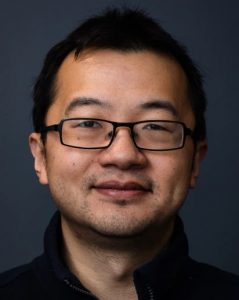
Li Song, PhD
Dr. Song’s research focuses on designing algorithms and developing computational methods to analyze sequencing data. These methods include transcriptome assemblies for studying immune receptors and genome annotation, compact data structures for microbiome data analysis, and sequence alignment for chromatin profiling and genotyping highly polymorphic genes. His lab also applies these methods to study the immune system and microbes in various diseases, such as cancers.
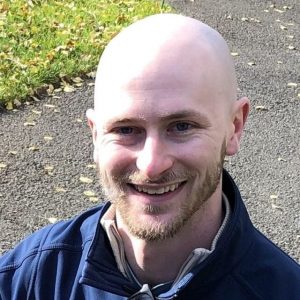
Kenneth Hoehn, DPhil
Dr. Hoehn is a computational immunologist developing new algorithms to understand the adaptive immune system using single cell sequencing data. A major focus is in using lineage trees to track B cell dynamics across time and between tissues. His lab works extensively with collaborators to understand how the immune system changes during vaccination, autoimmune diseases, food allergies, and cancer.
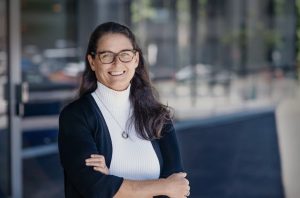
Lynn Fiellin, PhD
Dr. Fiellin and her play2PREVENT Lab’s research focuses on the development, evaluation and implementation of novel videogame interventions to promote health and reduce risk in youth and young adults. She and her team of researchers, game developers, and community partners have created and evaluated interactive evidence-based games addressing mental health, opioid misuse, smoking/vaping, and sexual health and HIV/STI prevention.
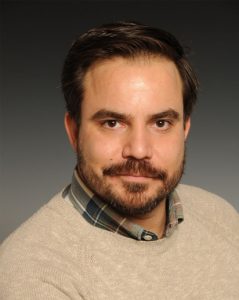
Christian Darabos, Ph.D.
Christian Darabos is the Assistant Director for Research Informatics and a Lecturer in Quantitative Biomedical Sciences at Dartmouth College. He has a passion for teaching and supporting research scientists and students in all their data analytics and computational needs. As a published research scientist, he has spent most of his career in life science informatics, developing data analytics tools, pipelines, and systems for large-scale datasets, as well as architecting complex data repositories and databases. He is currently developing a cross-functional program for data science, visualization and analytics. In collaboration with the Libraries, his team conducts a series of workshops and tutorials on Reproducible Research.
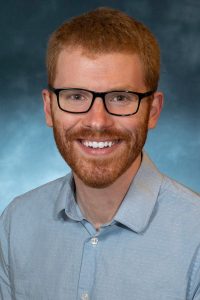
Nicholas Jacobson, PhD
Dr. Jacobson’s research involves the utilization of mobile devices (smartphones and wearable devices) to assess and treat psychopathology (e.g. anxiety and depression). His quantitative expertise largely centers around analysis of intensive longitudinal data using a variety of techniques (machine learning, time series techniques, dynamical systems modeling, and novel methods development).

James O'Malley, PhD
Dr. O'Malley's research interests have centered on social network analysis, causal inference, multivariate-hierarchical modeling, and the design and analysis of medical device clinical trials. He has developed novel statistical methods, often involving novel use of Bayesian statistics, to solve important methodological and applied problems in health policy and health services research, including the evaluation of treatments and quality of care in multiple areas of medicine.

Todd MacKenzie, PhD
Dr. MacKenzie uses statistics to help medical researchers from a vast spectrum of disciplines and specialties. Over a 180 peer-reviewed publications have resulted from his collaborations. He has expertise in survival analysis.
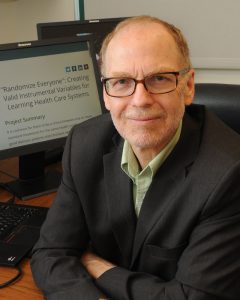
Tor Tosteson, ScD
The Tosteson lab conducts statistical research in the areas of noncompliance in surgical clinical trials, covariate measurement error for nonlinear regression models and statistical methods for image-based research.
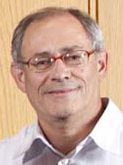
Eugene Demidenko, PhD
Dr. Demidenko has broad interests in theoretical and applied statistics, applied mathematics, and biomathematics. He has published papers on mixed models, sample size and power calculations, asymptotic hypothesis tests comparison, optimization in statistics, image reconstruction, inverse problems, financial mathematics, partial differential equations, statistical analysis of image and shapes, and tumor response to treatment.

Jiang Gui, PhD
Dr. Gui's is developing cutting-edge biostatistical methods for the analysis of high-dimensional omics data. Recent work has focused on the detection of gene-gene interactions in genome-wide association data.

Saeed Hassanpour, PhD
Saeed Hassanpour is developing computational methods and tools for extracting and organizing biomedical knowledge from unstructured data and text. The lab's data mining interests cover a wide range of data from clinical notes, patient medical history, radiology and pathology reports, medical imaging repositories, biomedical literature, the Web, and social media contents. The lab's knowledge extraction frameworks aim at distilling meaning from heterogeneous, complex and massive amounts of biomedical data and text, improving the understanding of medical conditions and health care, and having a practical impact on clinical care.
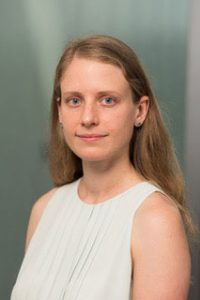
Erika Moen, PhD, MS
Erika Moen is a health services researcher with expertise in network analysis, biostatistics, and cancer research. A primary focus of her research involves the analysis of large heath care administrative datasets to assemble cancer patient-sharing networks and examine associations between network characteristics, geography, and patient outcomes. The ultimate goal of Dr. Moen’s research is to contribute to efforts in streamlining high-quality cancer care to optimize patient outcomes.

Jennifer Emond, PhD
Dr. Emond aims to better understand the development of healthy lifestyle behaviors (diet, physical activity, sleep) during early childhood. She focuses on measuring the influence of food marketing on children's dietary intake and eating behaviors, and on measuring how media use and media exposure in the home at a young age impacts sleep and eating behaviors prospectively.

Ramesh Yapalparvi, PhD
Dr. Yapalparvi has a PhD in applied mathematics where his research was focused on fluid dynamics, optimization, and mathematical modeling. Before transitioning as a data scientist, he worked in various universities across the world teaching mathematics.Ramesh has experience in developing predictive models for insurance and healthcare sectors and also provided consultancy services to various start-ups in engineering and machine learning.

Siming Zhao, PhD
Dr. Zhao's research focuses on studying the genetic etiology of human diseases, in particular, cancer. Her lab develops computational methods and tools to analyze large-scale genomic datasets, aiming to translate data into biological insights. Specific areas of interest include modeling of mutation-selection in cancer, genotype-phenotype association analysis, integration of multiple types of genomic datasets for disease gene discovery.
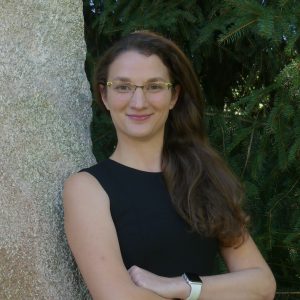
Noelle Kosarek, PhD
Noelle received her PhD in Quantitative Biomedical Sciences at the Geisel School of Medicine at Dartmouth in 2022. Her dissertation work leveraged single cell RNA-sequencing to explore cell type diversity and differentiation in a 3D skin model of systemic sclerosis (SSc), a rare autoimmune disease causing fibrosis of the skin and internal organs. Noelle extended her research interests to include geospatial, epidemiologic investigations of SSc in a United States Medicare beneficiary population. Noelle serves as a research scientist for the data analytics core at Dartmouth where she analyzes single cell datasets for academic labs. Noelle’s interests include implementing novel computational approaches for single cell analysis to discern cell diversity and differentiation in end organs. Outside of the lab Noelle enjoys biking, hiking, running, and skiing in the Upper Valley.
Computer Science Faculty
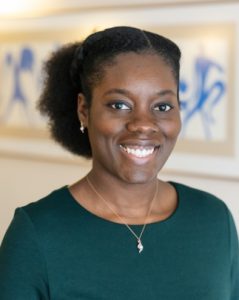
Temiloluwa O. Prioleau, PhD
The focus of Dr. Prioleau's research interest is in the application of data science to human sensing and health. This includes developing and using mobile, wearable, and digital solutions to understand, monitor, and affect bio-behavioral factors that influence health. She co-direct the Augmented Health Lab and is an affliate of the Center for Technology and Behavioral Health (CTBH).
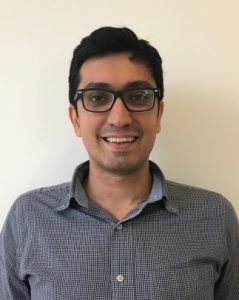
Soroush Vosoughi, PhD
Dr. Vosoughi's research interests lie at the intersection of machine learning, natural language processing and network science. His lab develops and applies methods to mine and model complex unstructured data from various domains. The specific problems his lab investigates are varied and cross-disciplinary.
Epidemiology Faculty
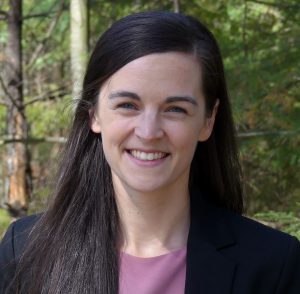
Meghan Muse, PhD
Dr. Meghan Muse’s current research focuses on infant exposures to maternal EV miRNA’s both in utero and after birth and their relation to early infant growth patterns. During her doctoral training in the Quantitative Biomedical Sciences program at Dartmouth, Dr. Muse studied early alterations to DNA methylation that occur during carcinogenesis both in breast cancer and melanoma. Within this work, she also developed novel libraries for the estimation of the cellular composition of breast and skin tissue from bulk DNA methylation data. Through her postdoctoral work, Dr. Muse is building upon work from early in her doctoral training assessing in utero exposures that influence infant growth in the New Hampshire Birth Cohort Study through the study of growth in the context of maternal EV miRNAs, a potential mediator of observed associations between environmental exposures and subsequent infant growth patterns.

Jeremiah Brown, PhD, MS
Jeremiah Brown in an Associate Professor of Epidemiology, Biomedical Data Science, and Health Policy. He is the principal investigator on two NHLBI R01 grants focusing on predictive analytics for readmission. He leads the Cardiovascular Outcomes team at The Dartmouth Institute focusing on cardiovascular epidemiology and biomedical informatics research. He has also received funding from the American Heart Association focusing on molecular epidemiology, Agency for Healthcare Research and Quality (AHRQ) studying patient safety and acute kidney injury, and the Veterans Administration focusing on the development and evaluation of a national risk model for acute kidney injury. The cardiovascular outcomes team is committed to supporting student research and instruction, training PhD students, postdoctoral fellows, clinical residents and fellows, graduate students, medical school fellows, and undergraduate scholars through the Women in Science (WISP) program, Neukom Institute, and undergraduate advising and research (UGAR).
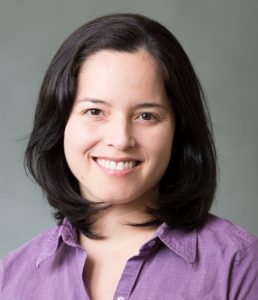
Diane Gilbert-Diamond, ScD
Dr. Gilbert-Diamond's research lab focuses on gene-environment interactions related to child growth and health including in utero exposures to toxic metals and vitamin D as well as early life exposures to electronic media and unhealthy diets.

Brock Christensen, PhD
Dr. Christensen's research is focused on combining advances in molecular biology, genomics and bioinformatics with the powerful techniques of modern epidemiology and statistics to characterize epigenetic states in human health and disease.

Elizabeth Barry, PhD
Dr. Barry is the Project Director for the Vitamin D/Calcium Polyp Prevention Study, a multi-centered randomized controlled trial of Vitamin D and/or Calcium for the prevention of colorectal adenomas. Her research focuses on cancer chemoprevention and the mechanism of action of chemopreventative agents.

Anne Hoen, PhD
Dr. Hoen's research focus is on the development of the microbiome in infants and children, and the associations between environmental and dietary exposures, the microbiome, and risk for infectious and other diseases.

Caitlin Howe, PhD
Dr. Howe’s research focuses on toxic metal exposures and their impacts on maternal and child health, with a particular interest in effects on early life growth and cardiometabolic health. Additional areas of interest include epigenetic mediators of toxicant exposures and metals toxicity in the context of nutritional status and complex environmental mixtures.
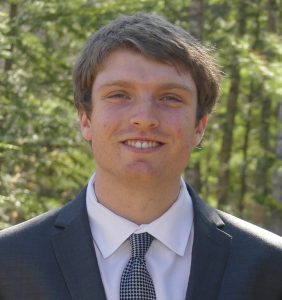
Joshua Levy, PhD
Dr. Levy is an Assistant Professor in both the Departments of Pathology and Laboratory Medicine (DPLM) and Dermatology, with an adjunct appointment in the Department of Epidemiology. He is one of the founders of the Emerging Diagnostic and Investigative Technologies (EDIT) program and currently serves as the Co-Head of EDIT's Machine Learning (ML) arm. His current research touches on the four following themes: 1) designing and validating artificial intelligence (AI) technologies for digital pathology (e.g., pathology reports, imaging, omics) which are in maximal alignment with clinical stakeholders (“by clinicians, for clinicians”), 2) investigating spatially localized omics information and envisioning prospective deployment, 3) leveraging AI and spatial omics technologies to further elucidate cancer pathogenesis and epidemiology; and 4) developing and applying hierarchical Bayesian techniques for the honest, fair and transparent assessment of medical AI technologies to avoid bias and overstating model effectiveness.

Michael Passarelli, PhD
Dr. Passarelli is a cancer epidemiologist focusing on genetic and environmental risk factors for common cancers, including the molecular epidemiology of colorectal cancer and adenomas.

Laura Paulin, MD, MHS
Dr. Paulin is a physician-scientist practicing adult pulmonary and critical care with a research focus on the association between environmental exposures (including occupational exposures and air pollution) and clinical outcomes in respiratory disease. Her primary interest is in indoor air pollution, including particulate matter and nitrogen dioxide, and how indoor sources and home behaviors in rural environments influence concentrations of these important pollutants. Her work explores how these airborne exposures impact clinical outcomes in individuals with respiratory disease, focusing on those with chronic obstructive pulmonary disease (COPD).

Megan Romano, PhD
Dr. Romano's research lab explores the influence of maternal exposure to environmental endocrine-disrupting chemicals (EDCs) during pregnancy on early life growth, childhood development, and pregnancy complications, with a focus on EDCs commonly found in consumer products in the United States, including phthalates, perfluoroalkyl substances (PFAS), parabens, and flame retardants.
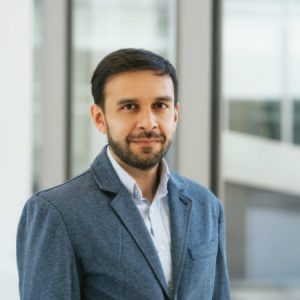
Lucas A. Salas, M.D., Ph.D., M.P.H.
The broad goal of Dr. Salas research is to investigate how cell heterogeneity impact human health and disease, with an emphasis on how genetic, environmental and lifestyle factors model the human epigenome and therefore the cell plasticity. Dr. Salas’ laboratory studies how some key epigenetic mechanisms (DNA methylation, DNA hydroxymethylation and miRNA alterations) affect gene expression and cancer outcomes, including how the immune cells are altered in this disease. Other research interests include biomarker development, chronic inflammation and human disease, and how exposures during fetal life alter newborn and childhood outcomes.
The Dartmouth Institute Faculty
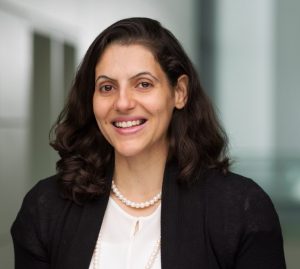
Inas Khayal
Inas Khayal is a highly interdisciplinary translational researcher focused on improving chronic disease health outcomes with a focus on serious illness. Her work began in biomedical research – within the clinic – using MRI for brain tumor research. It expanded to Internet-of-Things enabled social and environmental mobile sensing – outside the clinic – and within ‘real-world’ living labs. Her work now acts at the intersection of engineering, medicine, computation, and innovation and seeks to (re)design health care delivery systems to match the complex needs and experiences of patients to improve health outcomes.

Anna N.A. Tosteson, PhD
Dr. Tosteson's research addresses clinical and health policy issues in cancer and musculoskeletal diseases through decision-analytic modeling and economic evaluation. Her methodological interests include decision-analytic modeling, comparative effectiveness research, and statistical methods for diagnostic technology assessment.
Engineering Faculty

Margaret Ackerman, PhD
The Ackerman laboratory conducts interdisciplinary research at the interface of biomedical and engineering sciences: developing high throughput tools to evaluate the antibody response in disease states ranging from infection to cancer in order to aid in therapeutic antibody and vaccine design and development. We aim to understand the protective mechanism of antibodies using approaches grounded in fundamental engineering principles utilizing protein evolution, molecular biology, and mathematical modeling.
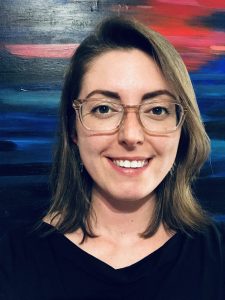
Britt Goods, PhD
The Goods Lab solves problems at the intersection of engineering, the immune system, and reproductive health by improving our understanding of biology and by developing tools and systems biology approaches to understand, manipulate, and integrate biological knowledge. The long-term goal of Dr. Goods’ research is to improve the lives of people by building a better understanding of the interplay between reproductive health and immunology, and translating those insights into therapeutics, diagnostics, and novel ways of both studying and monitoring reproductive and overall health.
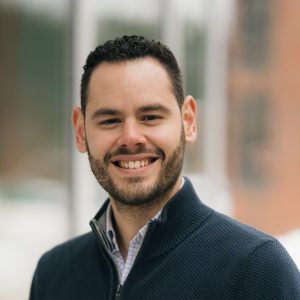
Wesley Marrero, PhD
Brief research description: Professor Marrero’s research interest lies at the intersection of operations research and statistics, with an emphasis on stochastic simulation and optimization to support decision making in practice. His current work addresses various application areas, including opioid use disorder, cardiovascular disease, and organ transplantation. Through this research, Marrero has ongoing collaborations with the Massachusetts General Hospital, the University of Michigan Medical School, the University of Michigan School of Public Health, and the U.S. Department of Veterans Affairs.

Jiwon Lee, PhD
Dr. Lee’s research lab conducts highly collaborative and multi-disciplinary research at the interface of human immunology and engineering. We develop innovative high-throughput sequencing technologies and bioinformatics tools to profile disease-specific antibody repertoire and gain clinically relevant insights regarding the precise features of antibodies that can provide effective protection to engineer more effective therapeutics and prophylactics. In particular, we are interested in understanding how antibody repertoires in circulation and mucosal sites develop, and how the pre-established antibody repertoire from immune memory can bias subsequent humoral immune responses with aims to engineer personalized vaccination strategies to harness the immune system to generate durable and effective antibody responses.

Solomon Diamond, PhD
The objective of Dr. Diamond's research is to use bioengineering and simulation to understand how the brain works. Specific interests include biomedical imaging, functional neuroimaging, physiological modeling, neurovascular coupling and magnetic nanoparticle imaging.
Molecular and Systems Biology Faculty

Giovanni Bosco, PhD
The Bosco lab has two major interests: One part of the lab studies learning and memory and inheritance of behavior. The other part of the lab studies how chromosomes and chromatinare organized in 3-dimensional space. Fruit flies are used as the model organism.

Jay Dunlap, PhD
Chair of Molecular and Systems Biology
Dr. Dunlap's research is directed towards understanding the mechanism by which eukaryotic organisms keep time on a daily basis, and how this capacity to keep time is used to regulate metabolism and development. Circadian clocks with fundamentally identical characteristics are found in all groups of eukaryotic organisms, but the uses to which these clock are put reflects the diversity of evolution.
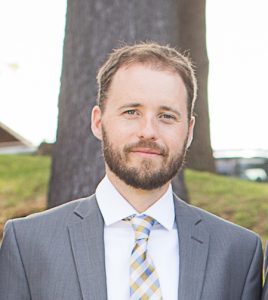
Aaron McKenna, PhD
My lab is interested in how cells grow and divide to form complex structures, such as the transformation from the zygote to an adult human or from a transformed cell into a tumor mass. To study these processes, we develop technologies to trace the pattern of cell divisions which recovers the lineage of each cell. This information can be combined with other measures of cell state such as single-cell transcriptomic data to develop a rich picture of how choices are made in the development and how this process is dysregulated in diseases such as cancer.
Neurology Faculty
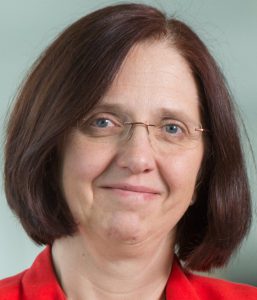
Barbara Jobst, PhD
In the Epilepsy and COGnition lab we study the relationship between cognition and epilepsy based on intracranial neurophysiology (Electrocorticography=ECoG). We also study the effectiveness of brain stimulation to treat epilepsy and seizures as well as to treat memory impairment.

Angeline Andrew, PhD
Dr. Andrew is a molecular epidemiologist with research interests in genetic and environmental factor interactions and their impact on cancer risk or prognosis. Recent projects include a large-scale investigation of SNPs and exposure factors that influence bladder cancer, and a multi-level analysis of lung tumor molecular markers in relation to exposure factors.
Microbiology and Immunology Faculty
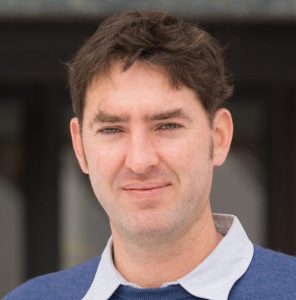
Daniel Schultz, PhD
The Schultz lab develops quantitative approaches to study the emergence, operation and optimization of the gene networks that control cell responses in bacteria, with a focus on antibiotic resistance mechanisms. We combine mathematical modeling, bioinformatics, experimental evolution and microfluidics to analyze how the cell controls the expression of resistance genes during drug responses. We strive to guide innovation in clinical therapies by uncovering the selective pressures that shape the evolution of antibiotic resistance in natural environments.
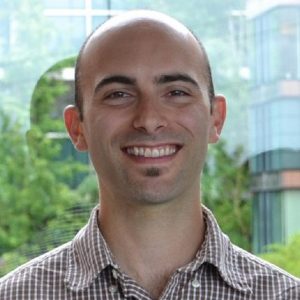
Benjamin D Ross, PhD
The Ross lab uses genetic manipulation of Bacteroides species, genomics approaches including metagenomics, and gnotobiotic mouse models to better understand mechanisms of gut microbiota community assembly and stability. They additionally seek to understand how the gut microbiota contributes to health via the production of metabolites and how this process might go awry in human diseases like cystic fibrosis.

Rahul Sarpeshkar, PhD
Professor Sarpeshkar's interdisciplinary research uses analog circuits and analog computation as a universal language to design advanced quantum, bio-molecular, and nano-electronic circuits and systems, from atom to living cell. These systems are experimentally implemented in living synthetic microbial DNA-RNA-protein circuits in his wet lab, and in nano-electronic supercomputing chips that emulate or are inspired by biological and quantum computation in his dry lab. His fundamental work has been applied to implantable medical devices, synthetic biology, systems biology, neural prosthetics, bio-inspired, and ultra-energy-efficient systems. His research group members have originated from a wide variety of disciplines including physics, bioengineering, microbiology, computer science, and analog circuit engineering.
Medicine Faculty
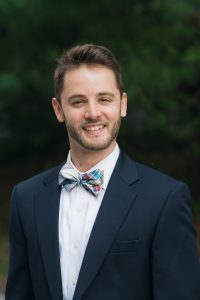
Chris Niemczak
With a clinical and research background in auditory neuroscience, the goal of my work is to understand how the auditory pathway, from ear to brain, could be used to reveal neurocognitive difficulties and track brain function over time. I’m also interested in new techniques for assessing peripheral and central hearing loss across the lifespan. I study clinically relevant populations, such as patients with Alzheimer’s disease, Long-COVID, traumatic brain injury, hearing loss, and HIV, to make identifying and following brain function more rapid, objective, and precise. To assess the brain, my research program is focused on understanding the underlying neural mechanisms of complex auditory function (such as speech perception in background noise) to improve our evaluative methods.
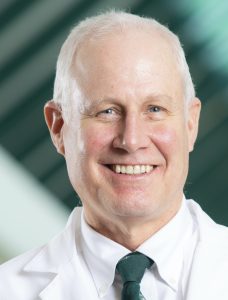
Jay Buckey, MD
Our laboratory is multi-disciplinary, with support from the NIH and NASA. Our main focus is using a variety to techniques to determine how the brain’s ability to process sound can be used as a marker of overall brain function.
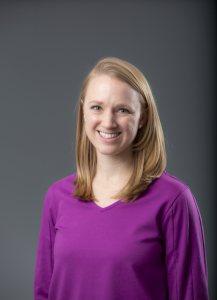
Jennifer L. Meijer
Dr. Meijer's research uses metabolomics to identify risk of metabolic disease, such as type 2 diabetes, in children and adolescents. Using nutrient challenges such as oral glucose tolerance test and high-fat mixed macronutrient tolerance test, Dr. Meijer profiles the response of the metabolome to identify characteristics influencing the ability to adapt to a nutrient load.
Biological Sciences Faculty

Olga Zhaxybayeva, PhD
Dr. Zhaxybayeva's research interests are to understand how microbes change over time by mining data sets containing thousands of genomes and terabases of environmental DNA (metagenomes) in order to find new ways to characterize microbial communities, and track down genomic signatures of microbial adaptations.
Staff
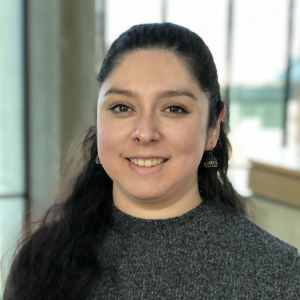
Monica Espinoza, PhD
MS Curriculum Director
Email: monica.e.espinoza@dartmouth.edu
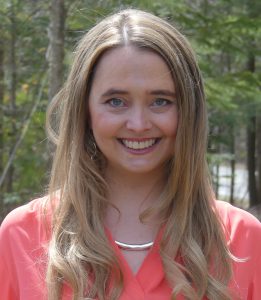
Kristine Giffin, PhD
Director of Academic and Student Affairs
Email: kristine.a.giffin@dartmouth.edu
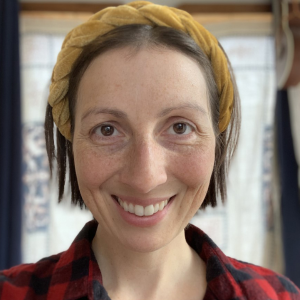
Amanda Helali, MA
Program Coordinator
Email: amanda.r.helali@dartmouth.edu

Emma LaPaglia
Marketing Specialist
Email: emma.b.lapaglia@dartmouth.edu